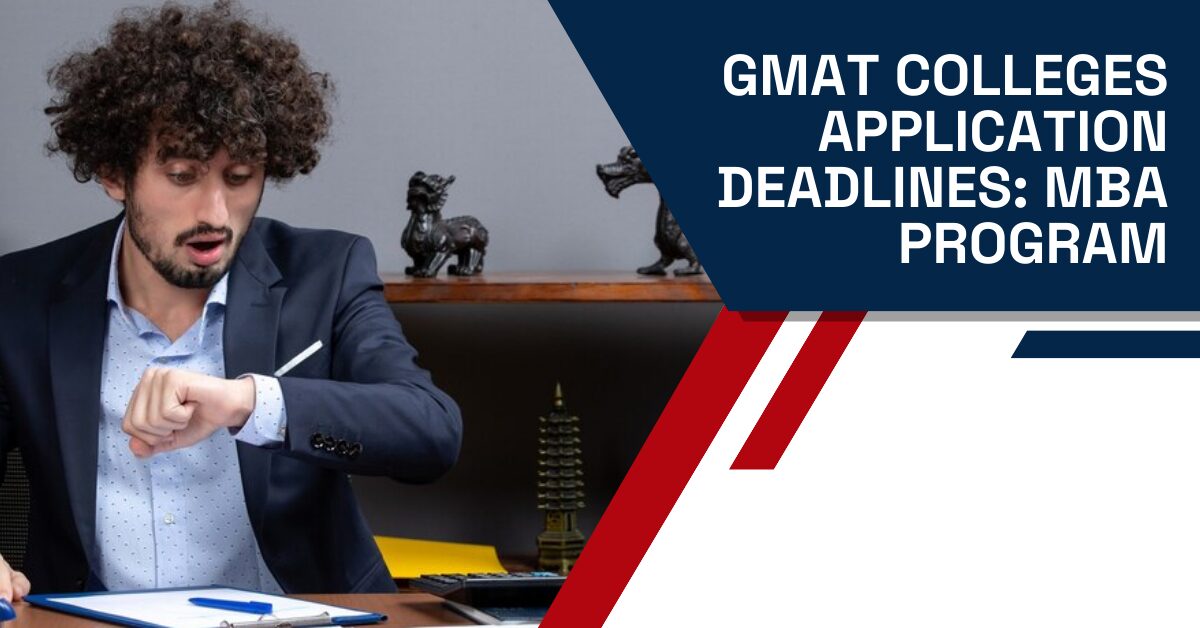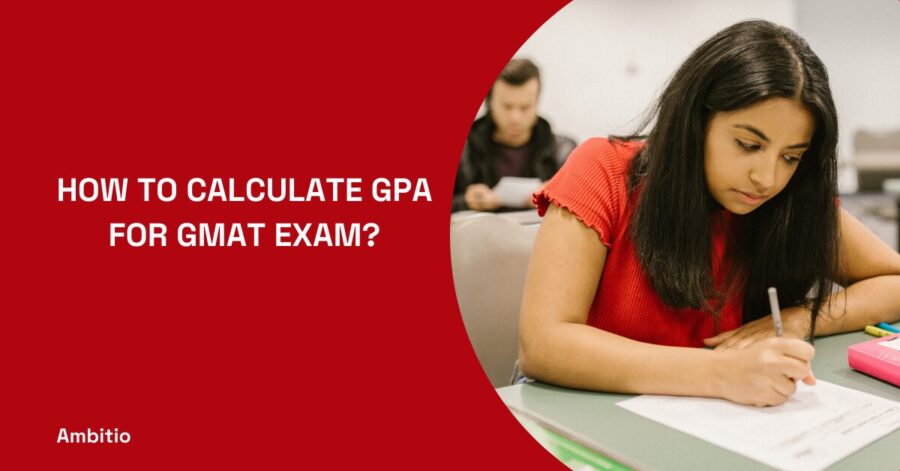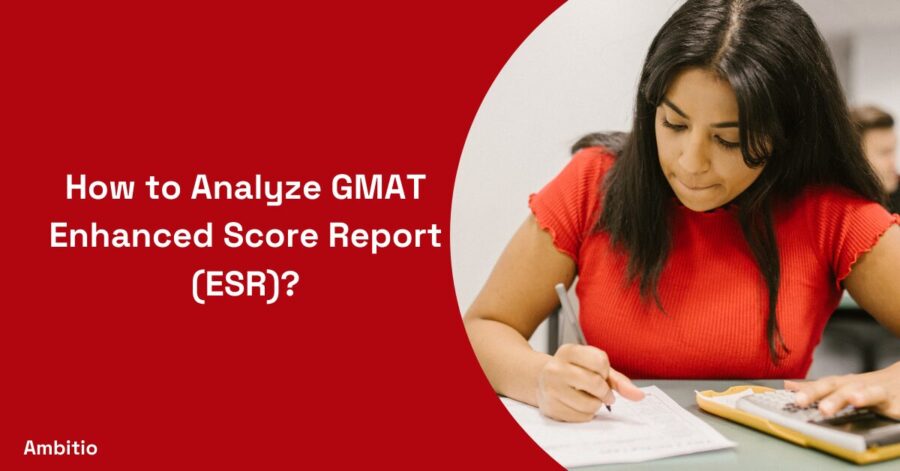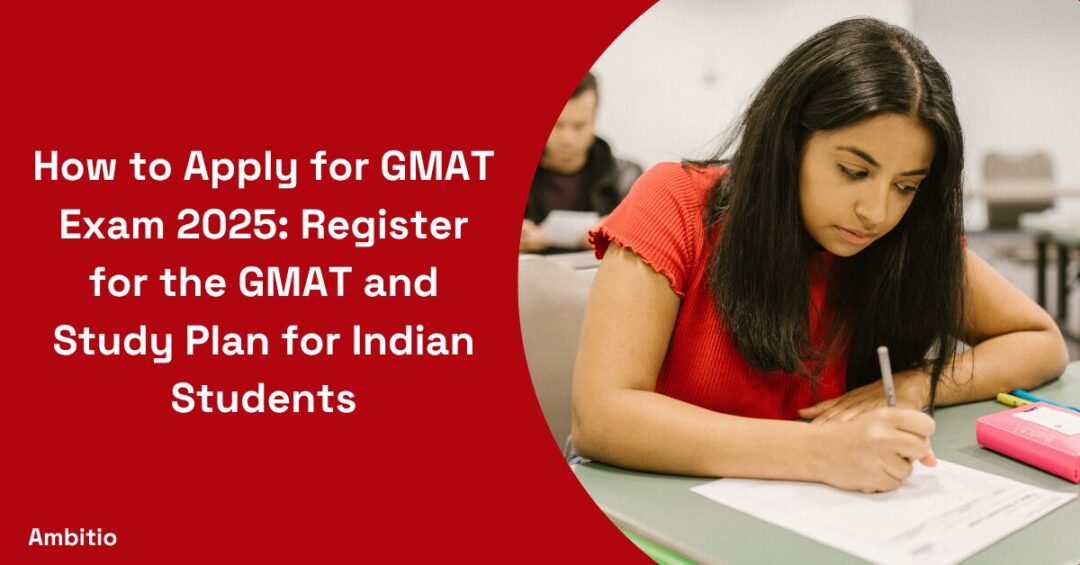2 September 2024
7 minutes read
GMAT Colleges Application Deadlines: MBA Program

Key Takeaways:
- Start preparing for the GMAT and your applications at least 9-12 months before your target deadlines to allow ample time for refinement.
- Submitting your application in the earlier rounds, especially Round 1, can increase your chances of acceptance.
- Keep track of each school’s specific deadlines and ensure all components of your application.
- Customize your application to align with each business school’s unique criteria and values to make a compelling case for your admission.
An applicant who wishes to pursue MBA must be certain of the GMAT accepting college admission application dates. These deadlines differ from one institution to another though they normally entail submitting applications at different stages, for instance early decision, regular decision, and rolling admissions.
Learning about the important dates of each college will assist you to plan your application appropriately so that you adequate time to prepare your documents for submission, prepare, sit and write GMAT and prepare a quality application which will capture your dreams and achievements.
This blog will give an overview of the application dates of the numerous MBA programs that accept GMAT score to enable the candidates plan adequately so that they do not miss the various important dates.
When should you take the GMAT?
The best time to take the GMAT is about 9-12 months before your target application deadline. Make sure to start your prep with the right GMAT books. This allows you ample time to retake the test if needed and ensures you can meet the application requirements for your chosen school of business. As we all know, GMAT adaptive test is tougher to crack than other normal exams.
For top MBA programs, applying early is often advantageous as it can improve your chances of acceptance and access to financial aid. Consulting an admissions consultant can provide personalized advice on timing and preparation. By planning ahead, you can optimize your GMAT score and enhance your MBA admissions prospects. When you consider the GMAT benefits, the hard work looks simple.
Starting Off the MBA Application Process

The MBA application process requires careful planning and adherence to deadlines. Start by researching the best business schools that align with your goals and prepare for the GMAT exam, which is a crucial component. Many students opt for the online GMAT option for convenience. Simultaneously, explore scholarship opportunities offered by the schools to help fund your education.
Pay close attention to the rounds of MBA application and their respective deadlines. Top programs are highly competitive, so applying in the earlier rounds can increase your chances of admission and scholarship consideration. But you should also have a competitive GMAT score.
There are even GMAT beginners guide available on the market, where you can start your journey. Even if you have a low GMAT and GPA for MBA, you can always retake the test or look for colleges accepting your scores. The application typically requires compelling essays that showcase your unique qualities and fit for the program.
For international students, researching and securing the necessary student visa is crucial. The visa process can be time-consuming, so start early to ensure a smooth transition. Staying organized and adhering to the MBA deadlines is essential to successfully navigate the application process.
What are MBA application rounds and their application deadline?
MBA programs have rounds of MBA application with specific deadlines. The MBA application cycle is typically divided into rounds like Round 1, Round 2, etc. Applying in earlier rounds increases chances of a successful MBA application as it’s more competitive. Applicants must prepare all application materials like essays, test scores well before the deadline for each round. Some applicants use an MBA admissions consultant to strengthen their candidacy, especially for competitive early rounds.
MBA Application – Early Action
Many top business schools like Harvard, Stanford, and Wharton offer an Early Action round for MBA applications. The graduate school of business at these institutions strongly encourages candidates to apply as early as possible, especially if you’re aiming for a spot in their highly competitive programs.
The application deadline for the world’s best business schools’ Early Action round is typically in September or October, several months before the regular deadlines. Applying in this first round demonstrates your commitment and allows the managing director of MBA admissions and their team to thoroughly evaluate your candidacy against a relatively smaller applicant pool.
While Early Action is non-binding, meaning you can still consider other offers, it’s a strategic move for serious applicants. Meeting the stringent application requirements and showcasing your fit for the business school’s culture and values in the Early Action round can significantly boost your chances of securing an admission offer.
MBA Application – Round 1
For Round 1 MBA applications, the deadlines are typically in September or October. This is the earliest round that business schools accept applications for their incoming MBA class.
Some key points about Round 1 for getting an MBA:
- Deadlines usually fall between mid-September and mid-October
- It represents the first batch of applications schools review
- Schools often make a large percentage of their admissions offers in Round 1
- With fewer applications in the initial pool, it can provide a slight admissions advantage
- It allows maximum time for the committee to evaluate your candidacy
- You’ll receive an admission decision by December or January
Applying in Round 1 demonstrates your strong interest and allows you to get an early read on your chances. However, it also means you need to have your entire application – essays, recommendations, test scores, etc. – ready very early in the admissions cycle.
MBA Application – Round 2
Round 2 deadlines for top MBA programs typically fall in early January. While not quite as advantageous as Round 1, applying to an MBA program in Round 2 still allows you to get your application in early in the cycle when schools are actively filling a large portion of their incoming class.
It demonstrates your strong interest in that respective business school/ university’s and allows adequate time for review compared to later rounds. Many schools also have healthy financial aid budgets remaining for strong Round 2 applicants.
However, the applicant pool is more competitive in the next three rounds, Round 2 versus Round 1. To stand the best chance of getting admitted, it is best to apply a polished, cohesive application that clearly conveys your fit and qualifications for the MBA program.
MBA Application – Round 3

It’s important to understand what the different admission rounds mean when applying for an MBA program. Round 3 is typically the final round of deadlines, usually falling in March or April. By this point in the cycle, a significant portion of the seats in the incoming MBA class have already been filled during the first round and Round 2. Admissions directors often warn that Round 3 is the most competitive and comes with the lowest odds of getting admitted compared to earlier rounds.
Schools have many fewer spots remaining to fill in Round 3, and they are being highly selective with who they admit in this last batch. That said, Round 3 can still be a viable option if you need that extra time to pull together a strong application. Just know that the competition is intense, and your chances of getting a scholarship or significant financial aid are diminished as budgets get depleted. If Round 3 is your only choice, make sure you craft an exceptionally strong, memorable application.
MBA Application – Round 4
Every business school is different, but admissions cycles are typically divided into several rounds. For top 15 MBA programs, there are usually 3 main rounds – with some schools offering a Round 4 or “Final Deadline” very late in the cycle.
Applying in the early different rounds gives you the best chance to stand out and compete for admissions and financial aid. Round 4 is generally inadvisable, as seats and scholarship budgets are extremely limited by that point. Want to stand the best possible chance? Apply in an earlier round. Also, there are many executive MBA without GMAT available, you can keep you hopes up there as well.
Deadlines to Apply to Colleges Accepting GMAT
Here is a list of the top colleges accepting GMAT scores across the globe and their specific application deadlines:
| School | Round 1 | Round 2 | Round 3 |
|---|---|---|---|
| Harvard Business School | September 7, 2024 | January 25, 2025 | April 9, 2025 |
| Stanford Graduate School of Business | September 12, 2024 | January 10, 2025 | April 3, 2025 |
| Wharton School at University of Pennsylvania | September 15, 2024 | January 5, 2025 | March 28, 2025 |
| MIT Sloan School of Management | September 25, 2024 | January 18, 2025 | April 8, 2025 |
| University of Chicago Booth School of Business | September 21, 2024 | January 4, 2025 | April 4, 2025 |
Conclusion
Navigating the MBA application process can be challenging, but understanding deadlines and planning ahead significantly boosts your chances. Early applications typically offer better acceptance rates and financial aid opportunities. You need to keep your GMAT admit card and other details ready prior to the exam to make sure you go in with a clear head for the exam. Cracking the GMAT exam is not something that is absolutely hard. You can beat the GMAT by taking care of a few things like GMAT time management and doing enough previous year papers.
Prepare for the GMAT well in advance, craft a strong application, and consider applying early to maximize your chances. Tailor your application to each school’s unique criteria to stand out. Whether you’re aiming for Harvard, Stanford, Wharton, MIT Sloan, or Chicago Booth, thorough preparation and strategic timing can help you achieve your MBA goals and advance your career in business.
Step confidently into your future with Ambitio’s Admit Finder, the bridge that connects your current achievements with your academic dreams. This tool ensures that your journey toward higher education is not just a path but a leap towards achieving your long-term goals.
FAQs
What are the main components of an MBA application?
An MBA application typically includes your GMAT score, essays, letters of recommendation, a resume, and transcripts from your previous academic institutions.
Can I apply to multiple rounds at different schools simultaneously?
Yes, you can apply to different schools in different rounds, but be mindful of each school’s deadlines and ensure you have enough time to prepare strong applications for each.
Is it necessary to hire an admissions consultant for MBA applications?
While not necessary, hiring an admissions consultant can provide personalized advice and help strengthen your application, particularly for highly competitive programs.
How important is work experience for MBA applications?
Work experience is a crucial component of MBA applications. Most top programs prefer candidates with several years of professional experience to demonstrate their career progression and readiness for an advanced business education.
What are some common pitfalls to avoid in the MBA application process?
Common pitfalls include missing deadlines, submitting generic essays, failing to prepare adequately for the GMAT, and not thoroughly researching each school’s unique application requirements and culture.
How can I strengthen my MBA application if my GMAT score is lower than the average for my target schools?
You can strengthen your application by highlighting your professional achievements, leadership experiences, strong academic record, and compelling personal essays. Additionally, securing strong letters of recommendation can help offset a lower GMAT score.

You can study at top universities worldwide!
Get expert tips and tricks to get into top universities with a free expert session.
Book Your Free 30-Minute Session Now! Book a call now




























